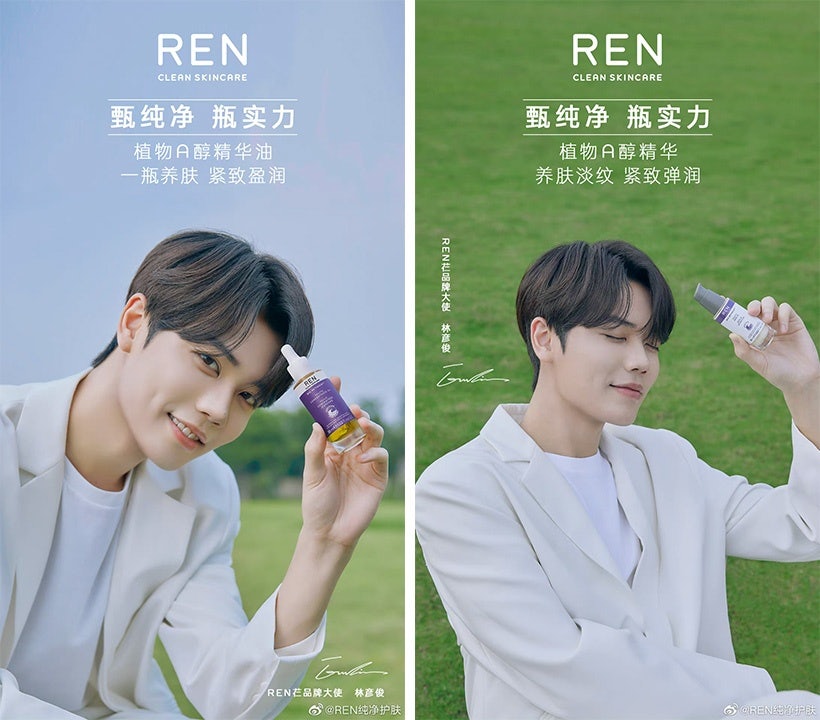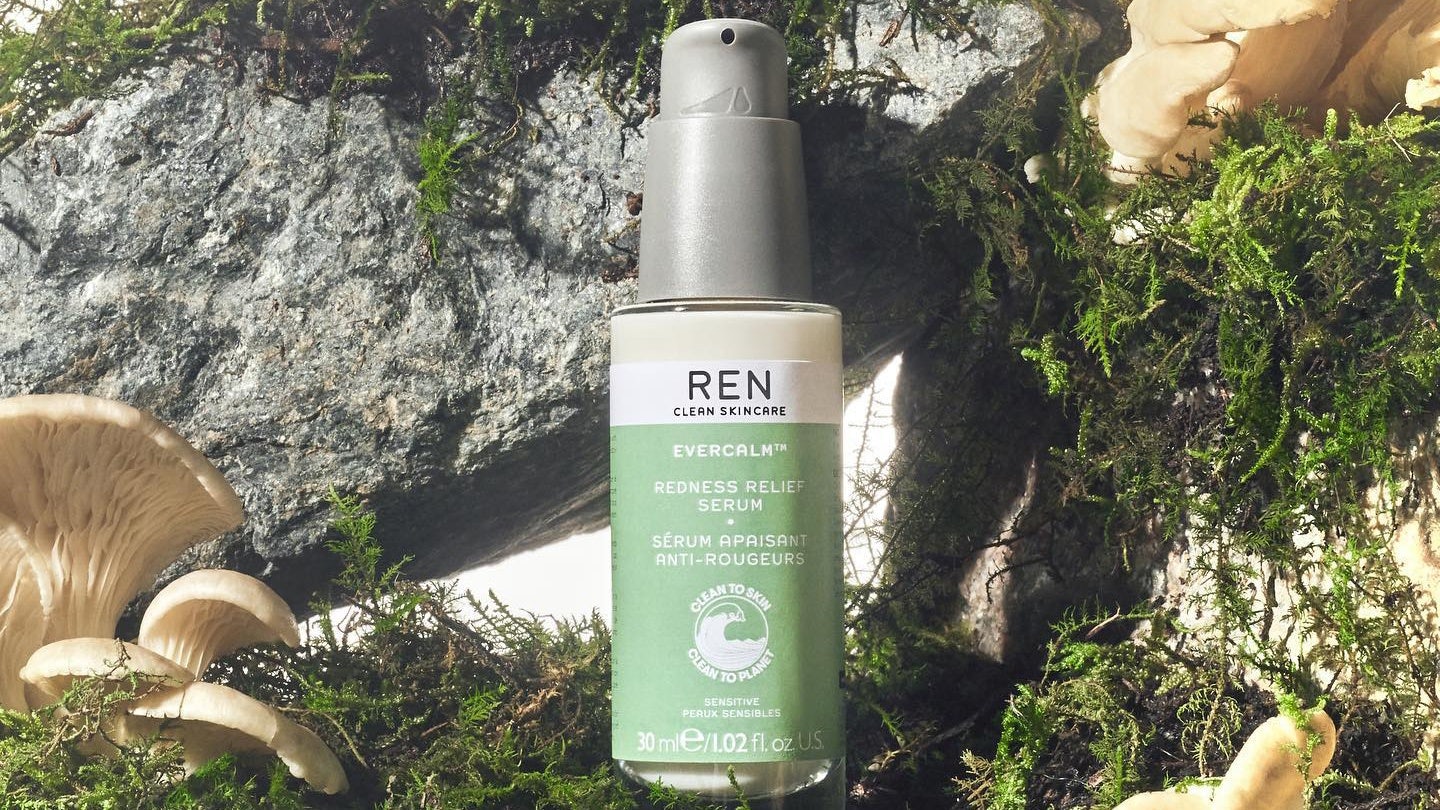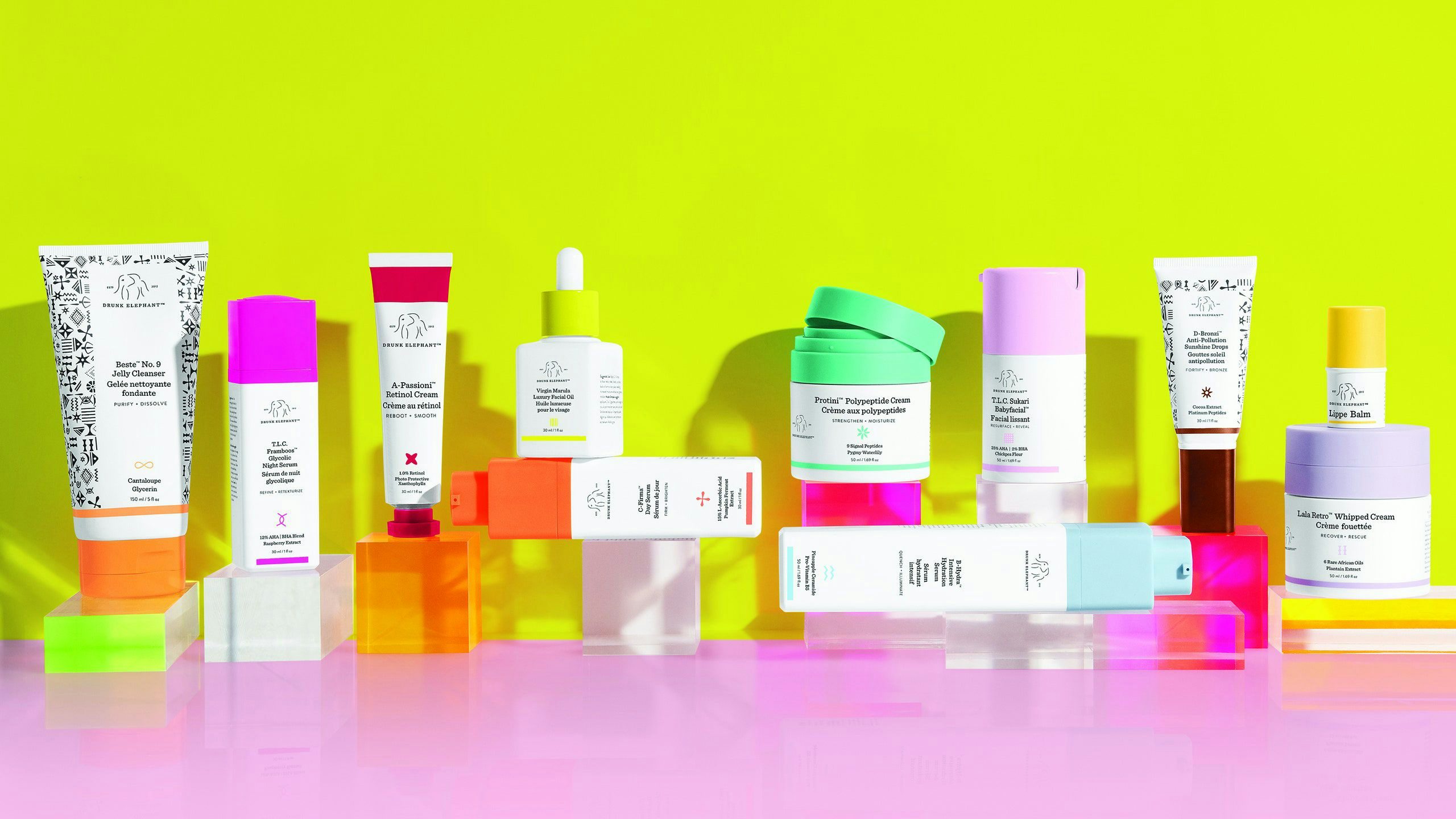What happened
Ren Clean Skincare is giving its China campaign a makeover. On June 1, the high-end skincare label under Unilever appointed Mandarin pop idol Evan Lin as its brand ambassador. In his announcement video on Weibo, Lin highlights that Ren uses plant-based ingredients and recyclable packaging, inviting consumers to experience “pure and natural beauty from the inside out.” As of publication, the post has raked in over 2 million views and 540,000 shares.

The Jing Take
Founded in London in 2000, the British beauty firm has built a reputation for its cruelty-free formulas, focus on sensitive skin types, and commitment to sustainability. In fact, at the end of 2021, the company met its zero waste pledge to make 100 percent of its packaging recycled, recyclable, and reusable. With hero products such as the Ready Steady Glow Daily AHA Tonic and Evercalm Overnight Recovery Balm, Ren Clean Skincare has developed a cult following that counts Hollywood actress Emma Roberts and British royalty Lady Amelia Windsor among its fans.
This latest marketing push in China comes as the country moves towards cruelty-free cosmetics. In May 2021, the government put an end to mandatory animal testing for a majority of general cosmetics (including shampoo, body wash, and makeup), a requirement that had prevented many cruelty-free businesses from importing products directly. In addition to policy support, consumer appetite for clean beauty has also grown: 90 percent of Chinese consumers noted that purchasing healthy or eco-friendly products was important to them, putting the mainland ahead of other major markets in demand, according to AlixPartners. Another report by McKinsey shows that 80 percent of shoppers here were willing to pay for sustainable packaging compared with 68 percent among Americans.
With China being the second-largest beauty market after the US, these interested consumer segments cannot be overlooked. Although Ren Clean Skincare is still a niche name there — sporting just 35,000 followers on Weibo and 1,000 related posts on Xiaohongshu — its fresh face could give the clean beauty proponent the momentum it needs.
The Jing Take reports on a piece of the leading news and presents our editorial team’s analysis of the key implications for the luxury industry. In the recurring column, we analyze everything from product drops and mergers to heated debate sprouting on Chinese social media.


